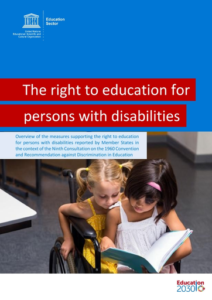Does Online Learning Discriminate Against Students With Disabilities?
Online Learning Discriminate Against Students With Disabilities
Does online learning discriminate against students with disabilities? In many ways, it does. According to the Center on Online Learning and Students With Disabilities, the majority of online learning platforms do not meet the needs of students with disabilities. Most of these programs do not provide the necessary support beyond rote drills. Many also fail to accommodate students with learning disabilities who find it difficult to focus. For these reasons, better instruction is needed. However, the challenges and solutions will differ for each student.
The main problem is that students with disabilities can’t access images and other visual elements. They also may not be able to use screen readers to access the information. Many of these students need a variety of accommodations to complete a course. One solution is to provide real-time captioning for students who can’t see or hear. This will enable students with disability discrimination to hear the lecturer’s voice and follow along with the conversation.
Another benefit of online learning is that it doesn’t care if a student needs to repeat a lesson. It doesn’t hold up the entire class. Instead, disabled students can simply move on to the next lesson. This way, online learning can maximize the learning potential of disabled students. Furthermore, distance education offers convenience to families and caretakers. It can also help overcome fears of being isolated and unable to participate in traditional classes.
Although it might be difficult to tell if an online course discriminates against students with disabilities, accessibility should be a consideration when designing online course material. The “social model” of disability considers that variations in ability are a normal part of the human experience. Using an integrated approach to disability studies emphasizes the design of a welcoming environment and accessible technologies. If the online learning program doesn’t take these factors into account, it may cause inefficiencies.

Does Online Learning Discriminate Against Students With Disabilities?
Another study found that online learners are less likely to disclose their disability than on-campus students. Moreover, students with disabilities were taught by teachers with the least qualifications. According to the Learning Policy Institute, schools often lack speech pathologists, physical therapists, and other specialists. This shortage only worsened during the pandemic. While districts could provide some of these services online, many of these are impossible to duplicate in an entirely virtual environment.
One way to address the problem is to adapt classrooms to meet the needs of students with disabilities. The Sun Prairie Area School District, for example, has adapted its programs to meet the needs of disabled students. However, it is a big challenge for these students to adjust to this new way of learning. In fact, the Sun Prairie Area School District has a total of 8,400 students, and only 1,333 are students with disabilities.
While many colleges and universities have made the transition to online learning, it has been found that online courses are not accessible for students with disabilities. A blind student could not finish an online course because PDFs did not support text-to-speech and closed captioning. However, students with disabilities could benefit from accessibility features on college campuses. The benefits of online education should not be underestimated. It can be a helpful option for students with physical disabilities who may need to get medical attention.